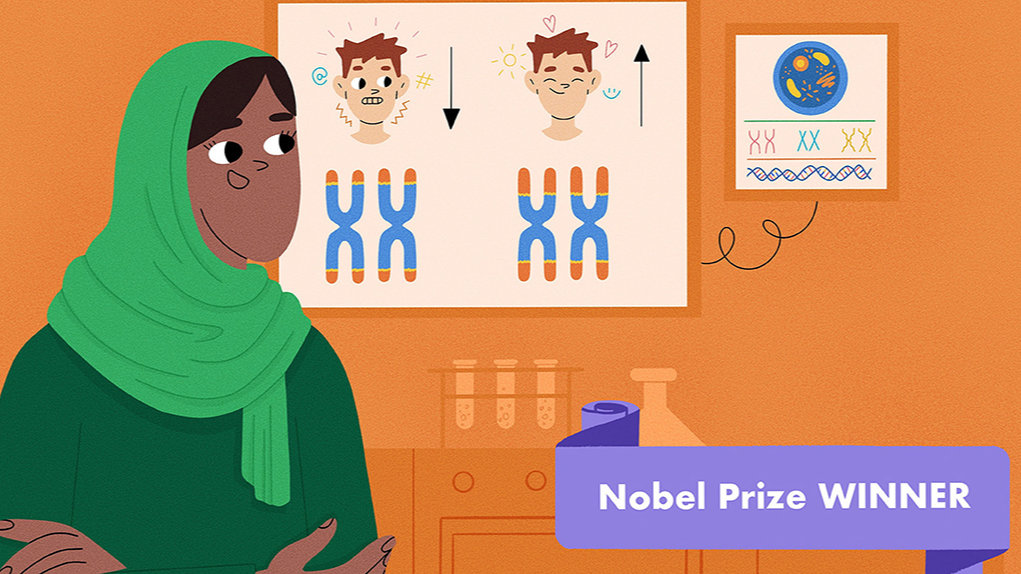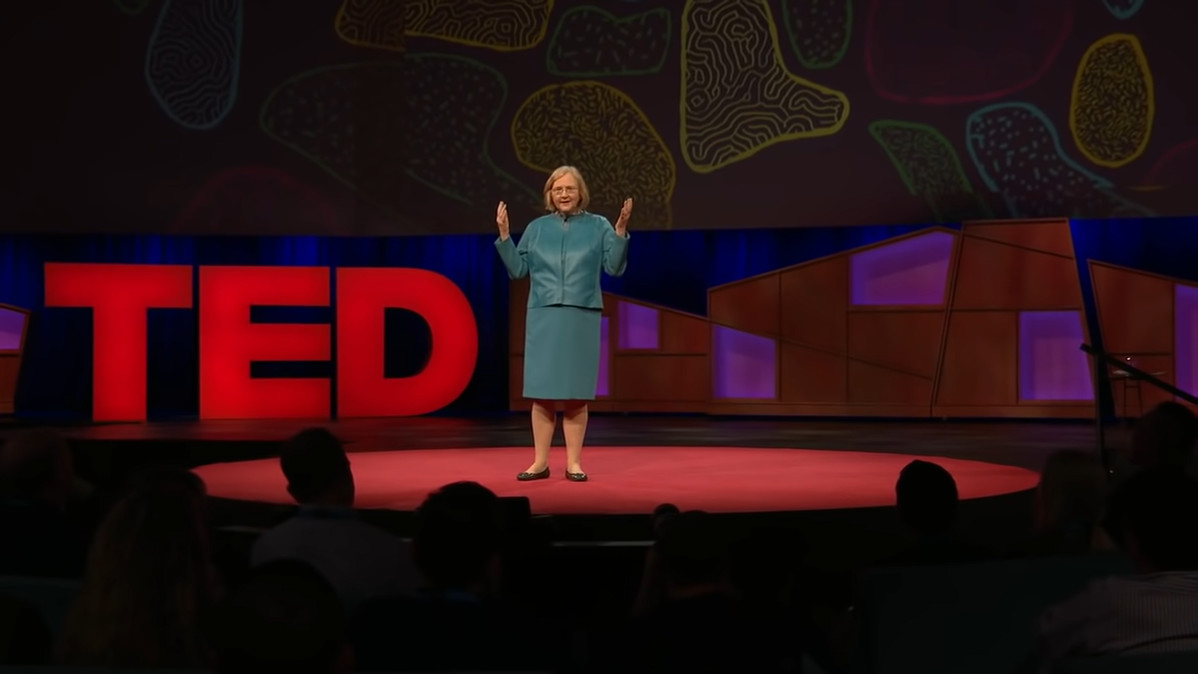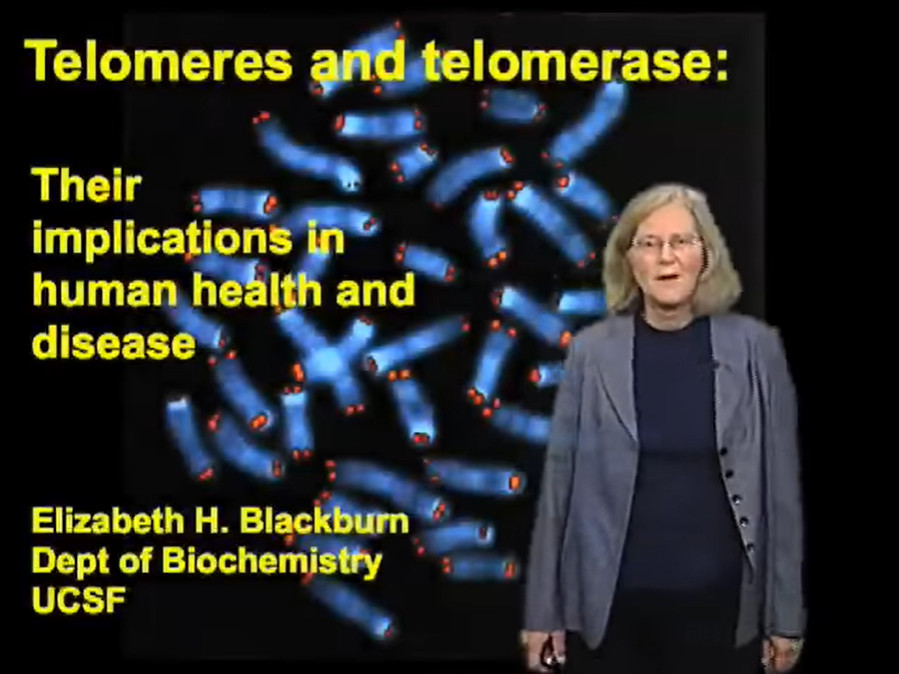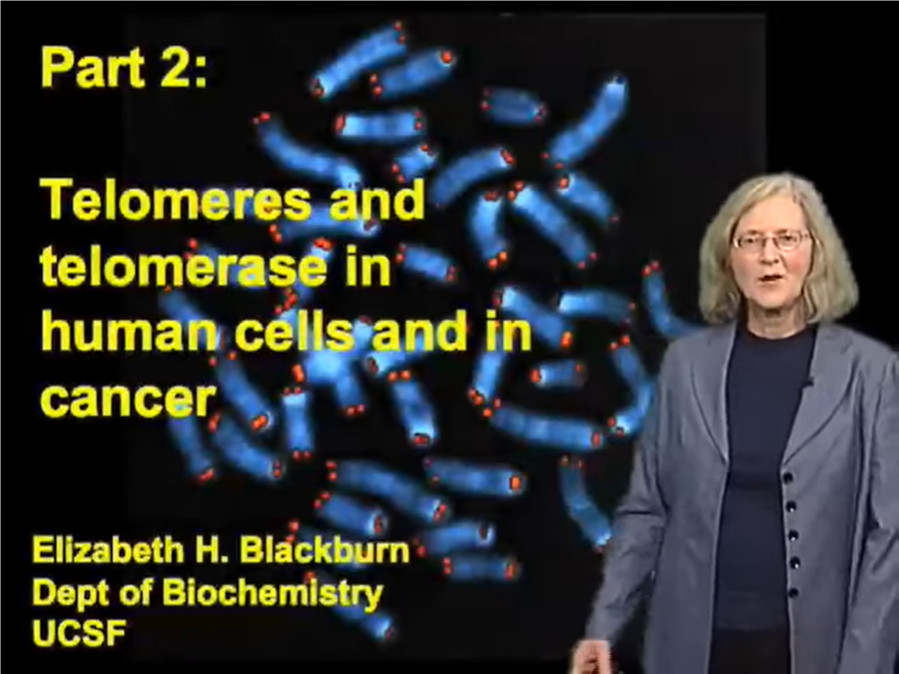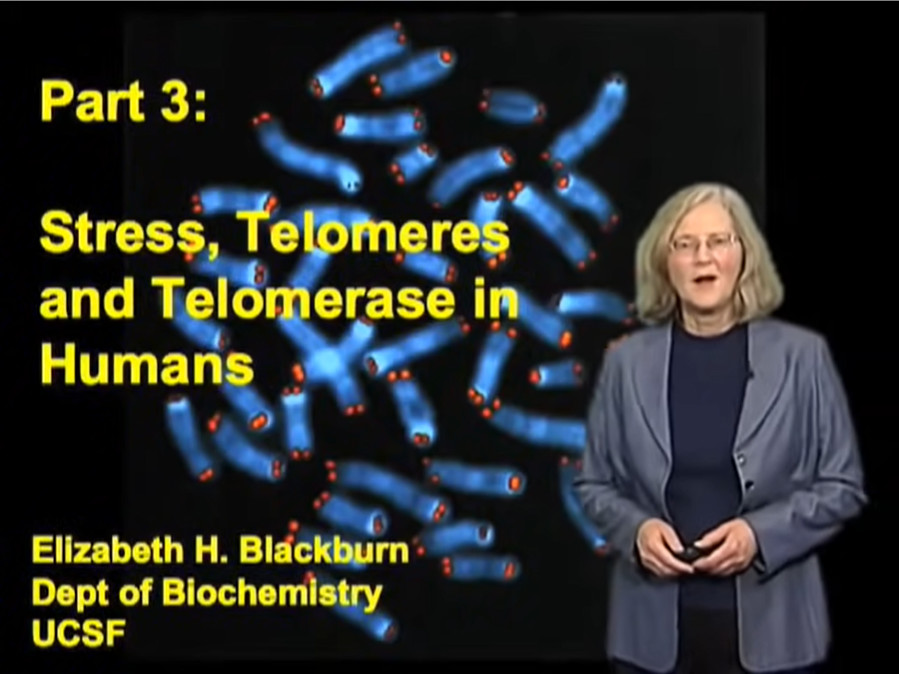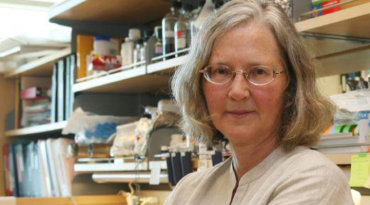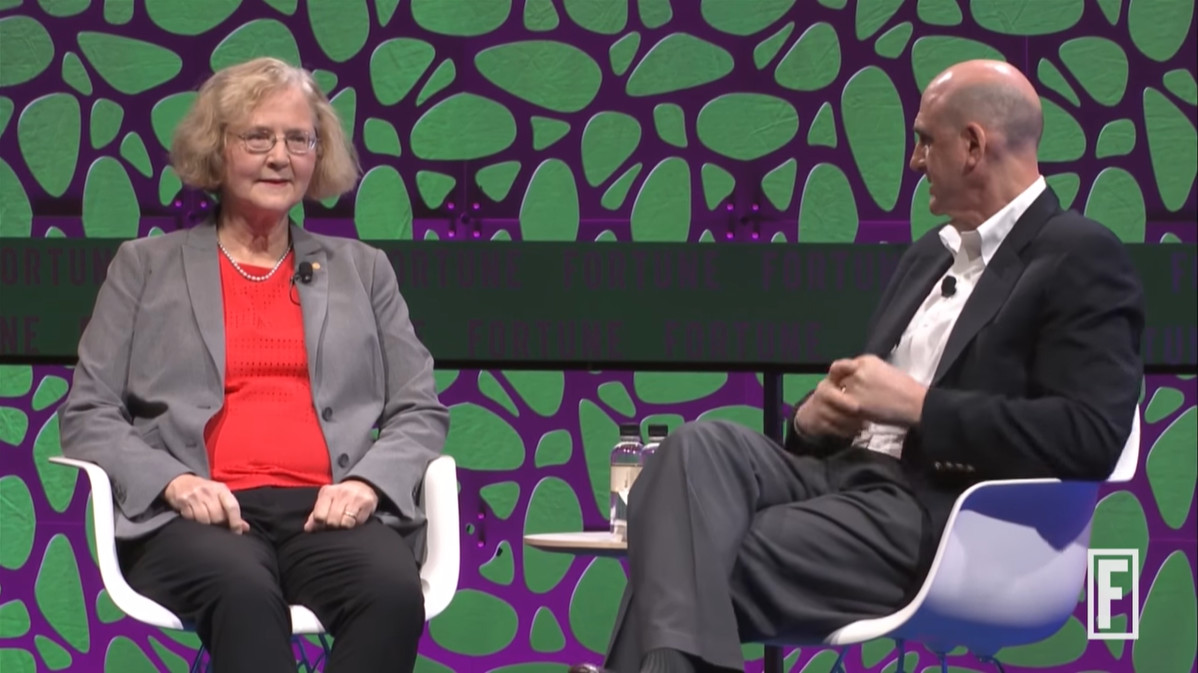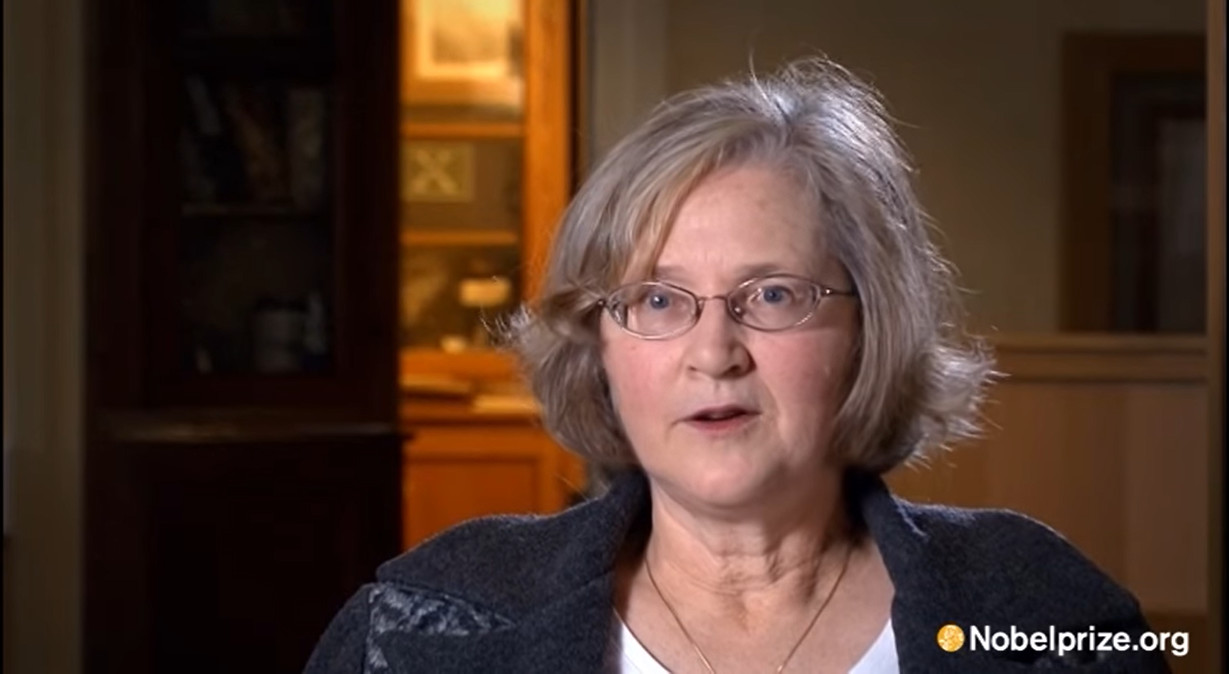Telomere Biology
Dr. Blackburn and her trainees have long worked at the forefront of telomere and telomerase research. Dr. Blackburn discovered the molecular nature of telomeres–the ends of eukaryotic chromosomes that serve as protective caps essential for preserving the genetic information–and she co-discovered the ribonucleoprotein enzyme, telomerase.
The research program of the Blackburn laboratory has focused on the structure and function of telomeres and telomerase. In addition, we have sought to understand how perturbations to telomeres modulate cell functions in both mitosis and meiosis. We have investigated these in many model systems, ranging from tetrahymena, yeasts and cultured cancer cells to humans.
Human beings can have a long life expectancy, but accumulating evidence suggests that insufficient telomere maintenance may limit the extent of healthy life, including increasing the risks and incidences of common chronic diseases that become prevalent as humans age. We are investigating the mechanisms underlying the impact of limited telomere maintenance on human organismic processes. For this research we combine collaborative clinical studies with cell and molecular studies in the lab.
Selected Lab Publications, available upon request

